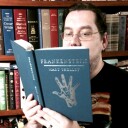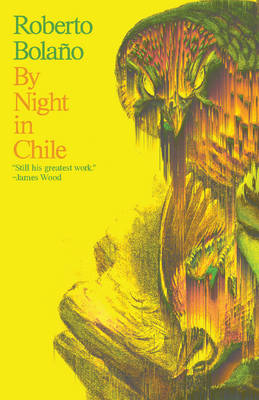
Michael @ Knowledge Lost
Written on Jul 22, 2015
Roberto Bolaño is one of those authors that I have wanted to read for a very long time. In particular I was interested in reading his two tomes 2666 and The Savage Detectives. The novella opens with the line “I am dying now, but I still have many things to say” and then goes into a rant about the protagonist’s life. A Jesuit priest, poet and literary critic; Father Urrutia is unapologetic about his life; from his involvement with Opus Dei, teaching Augusto Pinochet and even his sexuality.
While this can be viewed as an unremorseful reflection on his life, his memories go from bad to worse as the novella progresses. I spent most of the time reflecting on whether Urrutia’s fever was making him a reliable or unreliable narrator. As Roberto Bolaño is a post-modernist, I think the idea of By Night in Chile is to question the reliability of memories. On one hand if the fever is making the narrator more honest than he should, this novella gives you one idea of the importance of reflection on life. However if the fever was causing hallucinations and making the narrator unreliable, the themes change but still asks some similar questions.
I read this novella in one sitting; I found it a quick reading experience. Reflecting on the book is what was the most time consuming. Roberto Bolaño is an excellent writer and By Night in Chile was worth checking out. Chris Andrews translated the novella from Spanish, who also has a book of literary criticism called Roberto Bolaño’s Fiction. At 130 pages, By Night in Chile allowed me to experience Roberto Bolaño’s style before committing to 2666 or The Savage Detectives, which I think I will push up my own TBR.
This review originally appeared on my blog; http://www.knowledgelost.org/literature/book-reviews/genre/literary-fiction/by-night-in-chile-by-roberto-bolano/
